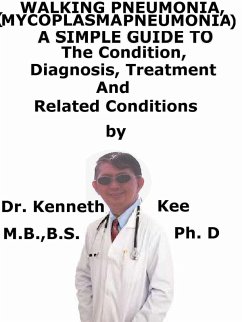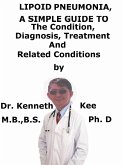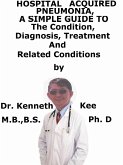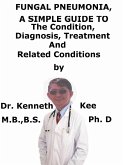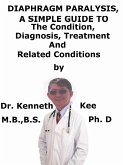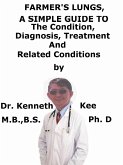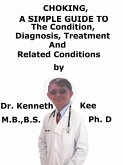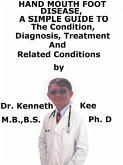This book describes Walking Pneumonia, Diagnosis and Treatment and Related Diseases Walking pneumonia is how some people depict a mild case of pneumonia. The doctor might call it "atypical pneumonia" since it is not like more serious cases. A lung infection is often to blame. Walking pneumonia and pneumonia are both the effect of a respiratory tract infection. They are produced by different types of germs. Walking pneumonia Walking pneumonia is normally caused by bacteria called Mycoplasma pneumoniae. Other bacteria that can cause walking pneumonia are: 1. Chlamydophila pneumoniae 2. Legionella pneumoniae, which causes Legionnaires' disease, a more severe type of walking pneumonia Pneumonia While walking pneumonia is produced by a bacterial infection, pneumonia can be produced by viruses, bacteria, or fungi. The most frequent cause of bacterial pneumonia is bacteria called Streptococcus pneumoniae, with Haemophilus influenza being the second most frequent cause. Roughly half of all people with pneumonia have viral pneumonia. In rare instances, fungi from soil or bird droppings can produce pneumonia in people who inhale it. This is called fungal pneumonia. Walking pneumonia is always produced by a bacterial infection. Pneumonia can result from a bacterial, viral, or fungal infection. Lots of things can cause it, such as: 1. Bacteria 2. Viruses 3. Fungi 4. Chemicals 5. Fats 6. Inhaled food Walking pneumonia normally is produced by a bacterium called Mycoplasma pneumoniae. If the patient has this disorder, the patient probably will not have to stay in bed or in the hospital. The patient might even feel good enough go to work and keep up the regular routine, just as the patient might with a cold. Walking pneumonia appears like it may be the name of a sci-fi horror film. But it is really the least frightening kind of pneumonia. It can be milder than the other types, and the patient normally don't have to stay in the hospital. The patient could have walking pneumonia and not even know it. It may feel like a cold Pneumonia is an inflammation of the airways produced by a viral, bacterial or fungal infection. Walking pneumonia is a non-medical term for a milder case of pneumonia. When the patient has pneumonia, the patient will likely need to spend at least a few days on bed rest. Some severe cases even require hospitalization. People with walking pneumonia occasionally do not even know they have it since the symptoms are so mild. Others may simply appear to have a cold or other mild viral illness. Risk Factors Anyone can get it. Walking pneumonia from mycoplasma is most frequent in children, military recruits, and adults younger than 40. People who live and work in crowded places such as schools, dorms, military barracks, and nursing homes are more likely to be exposed to it. Late summer and fall are the most frequent times of year for the patient to get walking pneumonia. But infections can happen throughout the year. There are certain factors that increase the risk of developing either walking pneumonia or pneumonia: 1. Being under 2 years old 2. Being older than 65 years old 3. Having a suppressed immune system 4. Having another respiratory condition, such as asthma 5. Using inhaled corticosteroids for long periods of time 6. Smoking 7. Living or working in very crowded spaces or those that have a lot of germs, such as a school, dormitory, hospital, or nursing home 8. Living in areas of major air pollution Pneumonia and walking pneumonia have the same risk factors. It spreads through sneezes or coughs....
Dieser Download kann aus rechtlichen Gründen nur mit Rechnungsadresse in A, B, CY, CZ, D, DK, EW, E, FIN, F, GR, H, IRL, I, LT, L, LR, M, NL, PL, P, R, S, SLO, SK ausgeliefert werden.

